Quartzy: the R.E.S.P.E.C.T. edition
Happy Friday!
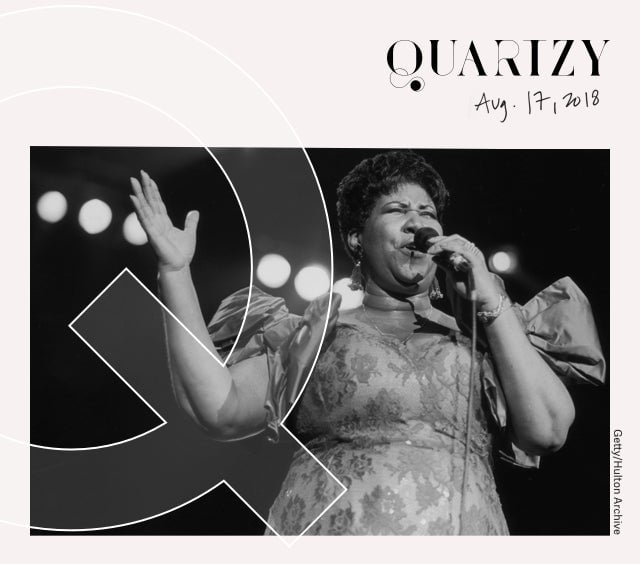
Happy Friday!
I’m Adam Pasick, a senior editor at Quartz who works on the Quartz app, Daily Brief, and Obsession email—but really I’m just a lifelong Aretha Franklin superfan.
Aretha, who died yesterday of complications from pancreatic cancer, had been suffering from ill health for several years—but the Queen still had the raw power to inspire crowds, mostly notably in 2015, when she brought tears to the eyes of Barack Obama and millions who watched her show-stopping rendition of “(You Make Me Feel Like A) Natural Woman” at the Kennedy Center.

She was an unabashed diva—quick to eviscerate anyone who failed to give her her propers—with more than her fair share of eccentricities. But ultimately none of that mattered, as her former band member Billy Preston explained to the New Yorker’s David Remnick, in an excellent 2016 profile of the singer:
“She can be hiding out in her house in Detroit for years. She can go decades without taking a plane or flying off to Europe. She can cancel half her gigs and infuriate every producer and promoter in the country. She can sing all kinds of jive-ass songs that are beneath her. She can go into her diva act and turn off the world. But on any given night, when that lady sits down at the piano and gets her body and soul all over some righteous song, she’ll scare the shit out of you. And you’ll know—you’ll swear—that she’s still the best f***in’ singer this f***ed-up country has ever produced.”

The tides turned in Muscle Shoals. Aretha’s fame was never guaranteed—she had nearly a dozen albums that flopped before she made it big.
She began singing gospel in the Detroit church of her father, the famed pastor C.L Franklin, and signed at an early age to Columbia Records, which attempted to market her as a jazz singer in the vein of Billie Holiday. It was only after she signed with Atlantic Records and began working with producer Jerry Wexler that the true Queen of Soul emerged, at a tiny music studio in Muscle Shoals, Alabama.
There, with a backing band of some unusually funky white musicians, she recorded the soul-baring single “I’ve Never Loved a Man (The Way I Love You)” in 1967. “Coming to Muscle Shoals was the turning point in my career,” the singer said in a documentary about the studio.
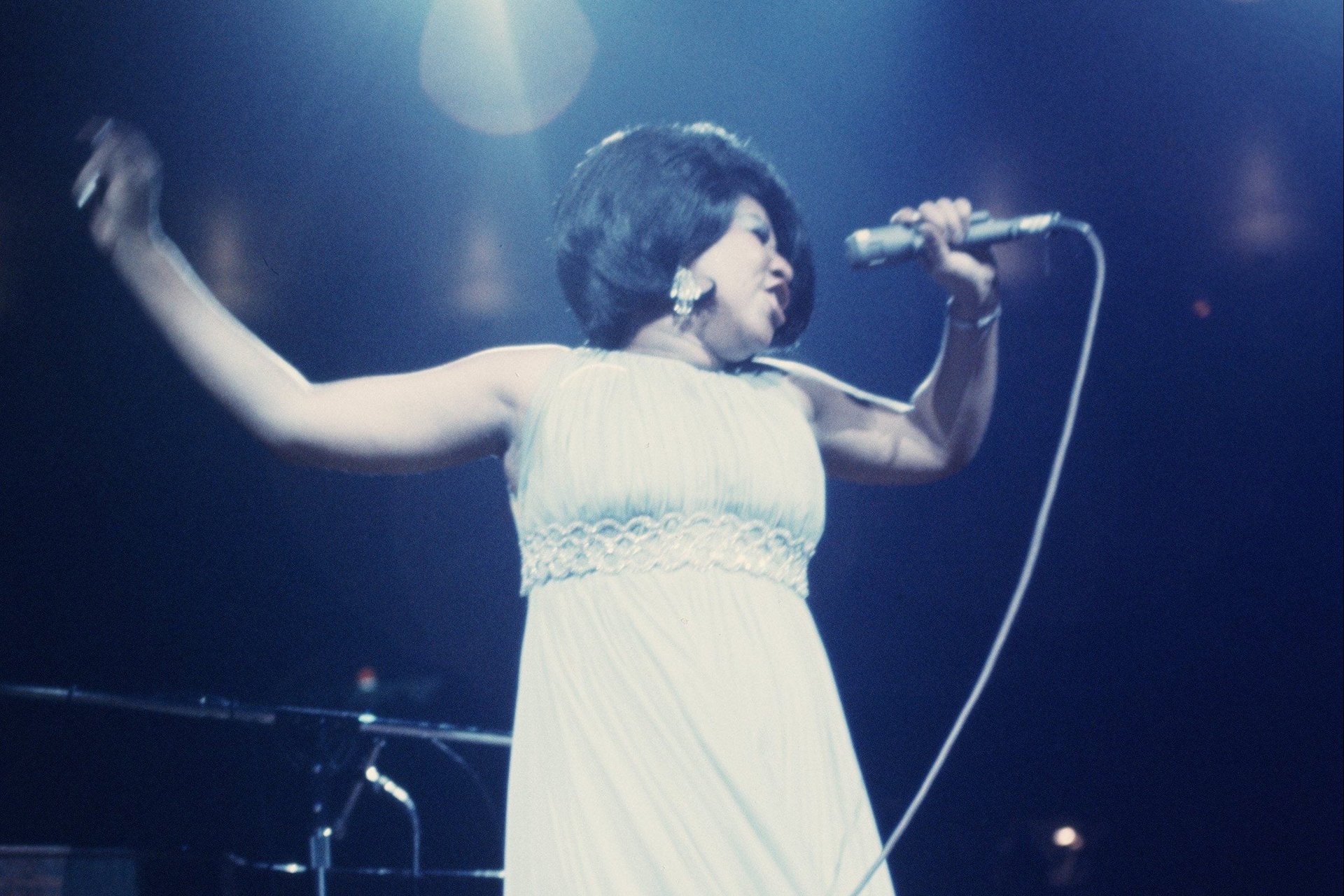
The song’s raw opening lines—“You’re no good / heartbreaker / You’re a liar and you’re a cheat / And I don’t know why / I let you do you these things to me”—could have been ripped from her own tumultuous life, which included an abusive marriage to Ted White, her husband at the time. When the song was finished, White got into a brawl with the manager of the studio, and Aretha quickly returned to New York.
But on the strength of “Never Loved a Man,” her new sound took shape. The Muscle Shoals musicians traveled to New York to finish the album—her 11th in 11 years—and with their backing she recorded a string of hit albums and songs that laid the groundwork for her entire career, including “Do Right Woman,” “Dr. Feelgood,” and, most of all, “Respect.”
Respect for a revolutionary singer. Aretha was exposed to activism from an early age. Her father organized the 1963 Detroit March to Freedom—then the largest civil rights demonstration in US history. Four years later, in 1967, Aretha recorded her cover of Otis Redding’s “Respect,” and gave civil rights and feminist activists an earth-shaking anthem. And she practiced what she preached: She told Elle her performance contract stipulated she would not play for segregated audiences, as was then the norm.
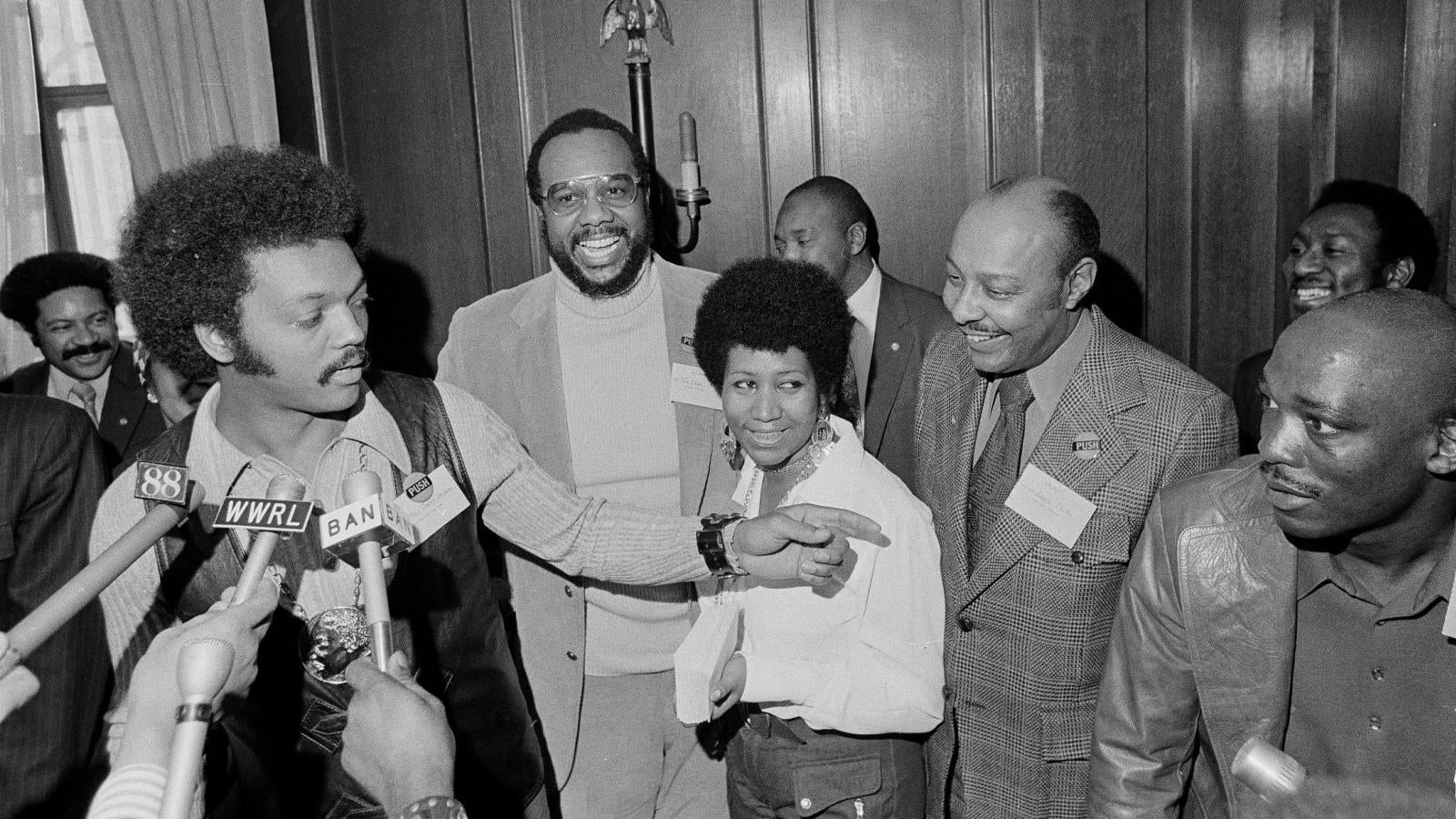
The same year, she toured with Harry Belafonte and Sidney Poitier to raise money for the Southern Christian Leadership Conference, Martin Luther King Jr.’s organization that fought for civil rights with nonviolence—and the following, she sang “Precious Lord” at King’s funeral. She publicly offered to post bail for black power activist Angela Davis in 1970, stating that “you got to disturb the peace when you can’t get no peace.”
“She loved black people,” wrote Vann R. Newkirk II in a moving remembrance this week for the Atlantic. “In this country, that simple fact was radical enough.”
She could also throw shade. Aretha’s sister Erma Franklin said, ”Aretha’s always had problems with her female contemporaries. Her fantasy is that they would all disappear and she and she alone would be the only singer … By not acknowledging them—whether it’s Gladys [Knight] or Mavis [Staples] or even younger artists like Natalie [Cole] or Whitney [Houston]—in her mind, she’s making them go away.”
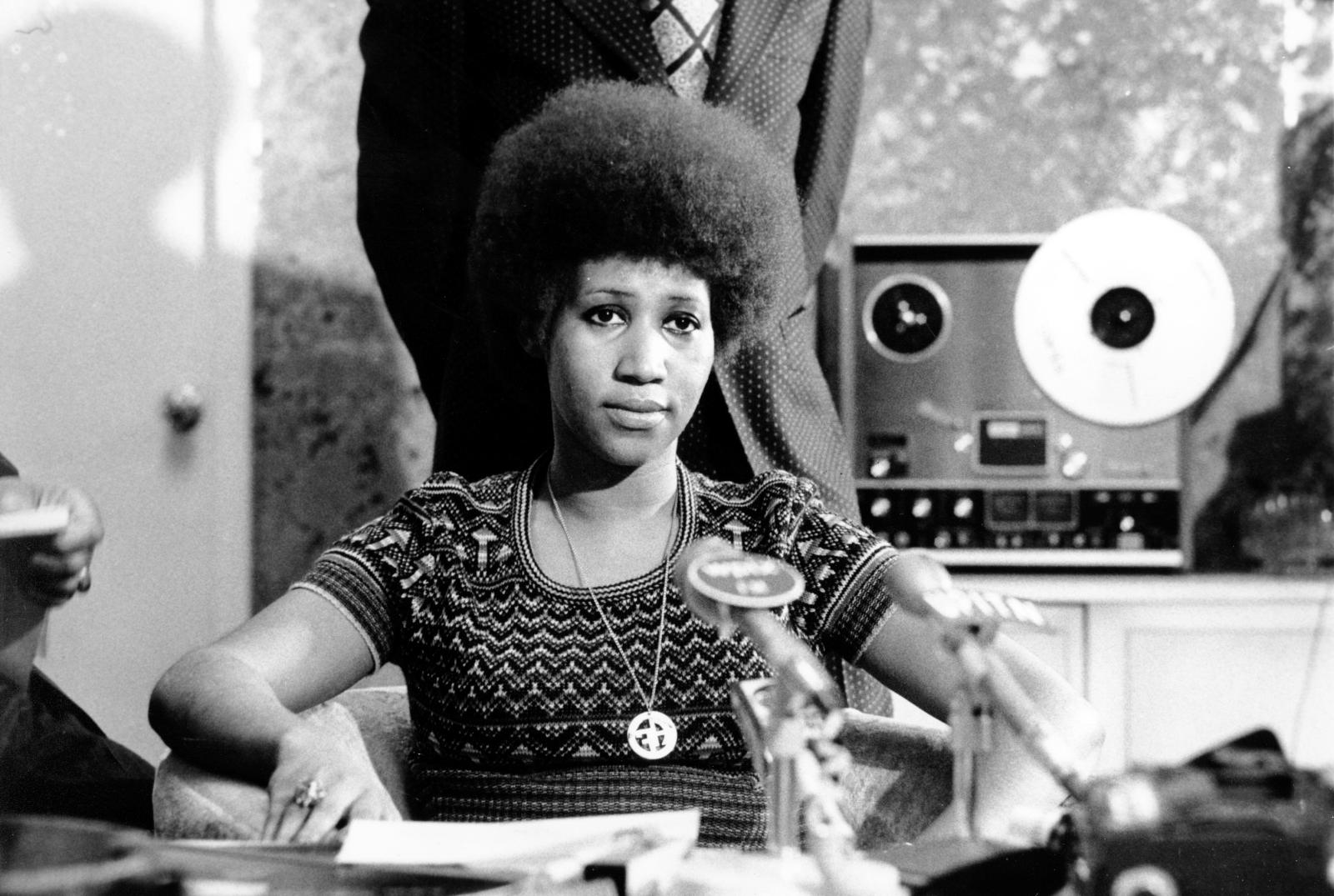
In 2014, Gawker’s Rich Juzwiak compiled a great rundown of Aretha’s many feuds and rival run-ins. Asked to comment on Taylor Swift, the queen of shade said: “OK, great gowns, beautiful gowns.”
Barack Obama’s advice: “When you’re deejaying a party, open with ‘Rock Steady.’”
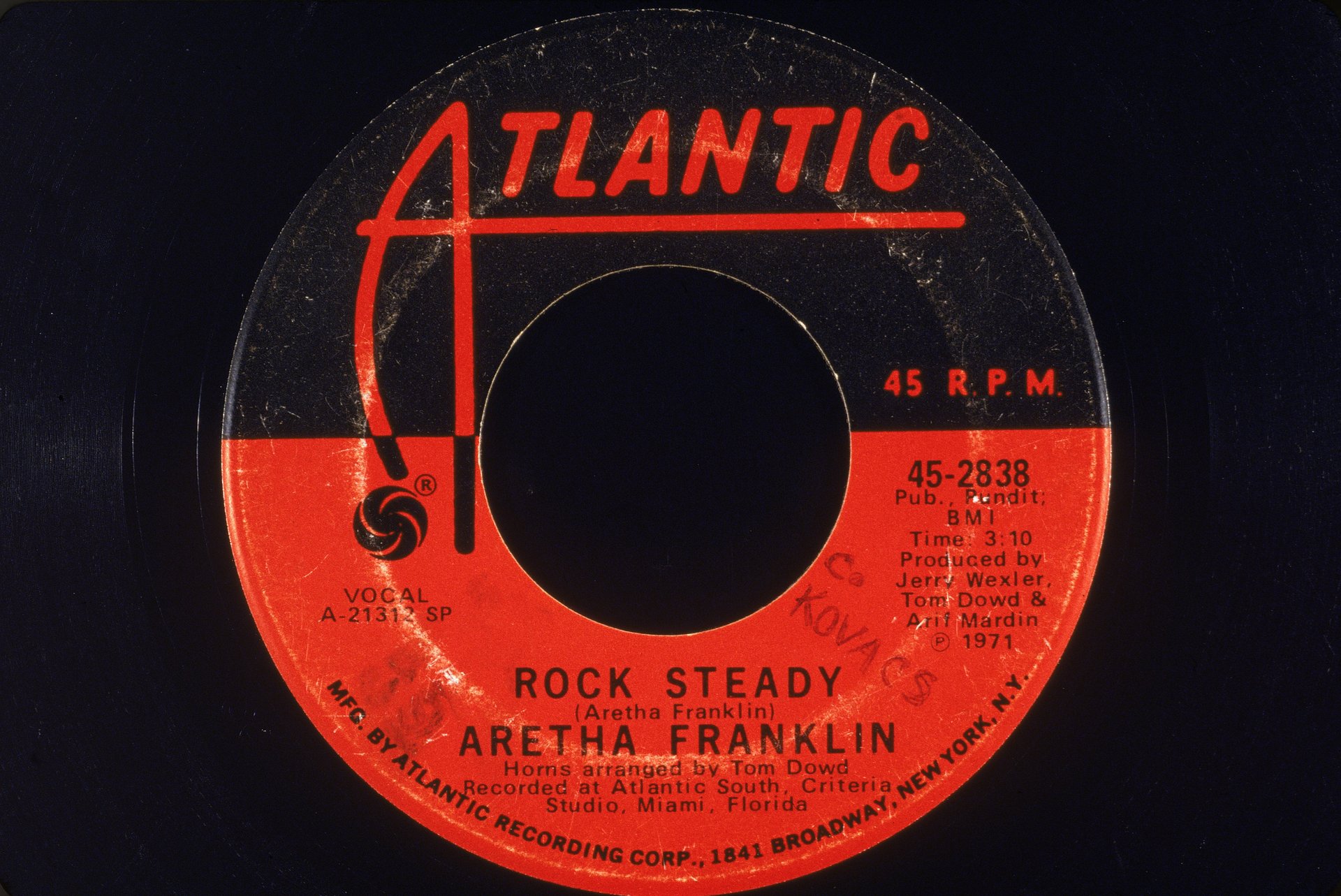
“Rock Steady” is a strong contender for Aretha’s funkiest song, thanks in large part to its hall-of-fame rhythm section, including Chuck Rainey on bass, Cornell Dupree on guitar, Donny Hathaway on organ, Dr. John on percussion, and the legendary Bernard Purdie—Aretha’s music director in the early 1970s—on drums. During the recording, when Aretha’s music fell off her piano and she stopped playing momentarily, one of music’s greatest accidents happened, Purdie explained to NPR:
“The red light was on — the red light means you always are recording. Tape was very, very expensive. We kept the music going, and I captured the eight bars that has taken me around the world. Everybody thought it was the most phenomenal drum break in my life—and all I was doing was keeping my time. I just smile, because 98 percent of the people of the world didn’t know my drum break was an accident. I love it.”
Here’s a video of Aretha doing the song, sans band, on Soul Train.
Have a great weekend!


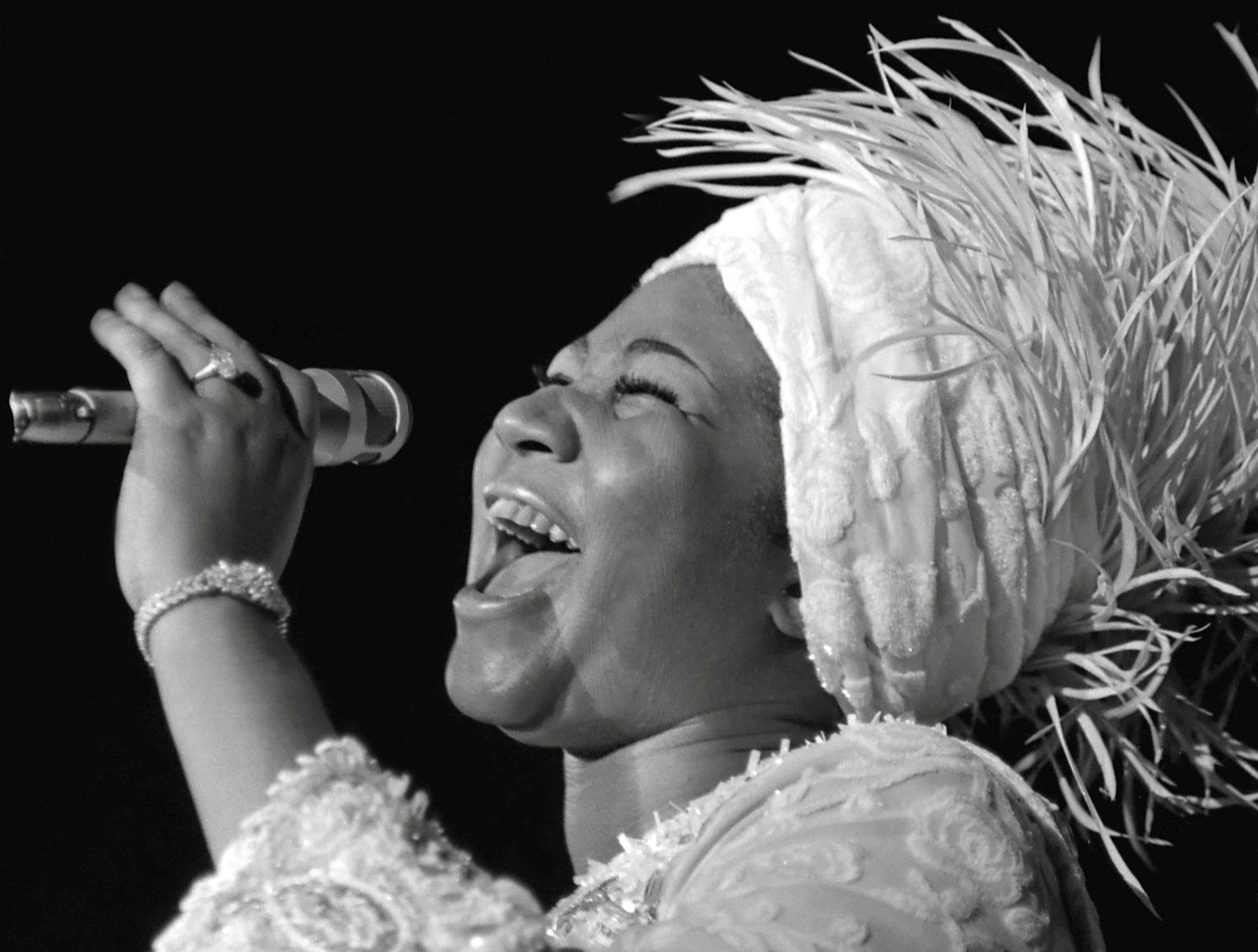
A few deep cuts. Here’s a playlist that shows off Aretha’s unequaled music range, whether she’s recording spirituals, her own material, or songs made famous by others. In particular check out:
Her cover of the jazz standard “Skylark,” which prompted jazz goddess Sarah Vaughn to say, “I’m never singing that song again.”
“Ain’t No Way,” penned by Aretha’s sister Carolyn, which showcases the all-time-great back-up singers known as the Sweet Inspirations. They included Cissy Houston, whose daughter Whitney would perform this song in her 1983 global debut.
“Day Dreaming,” penned by Aretha herself, featuring the same heavy-hitting rhythm section as “Rock Steady,” plus jazz flute player Hubert Laws. She sings: “I wanna be what he wants when he wants it/And whenever he needs it.”